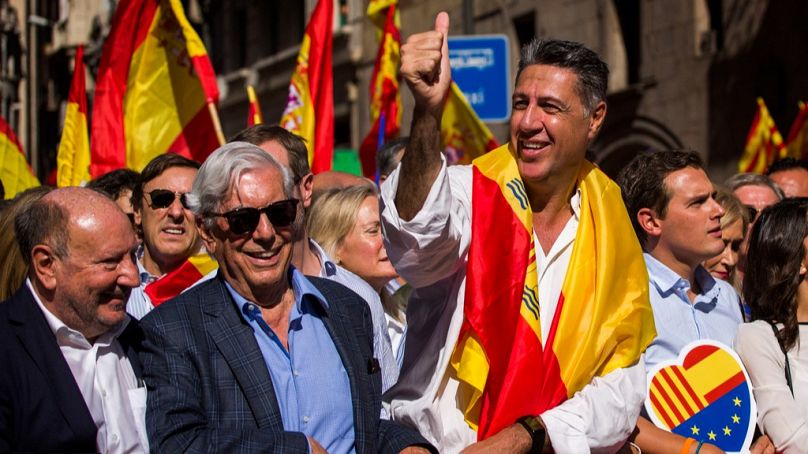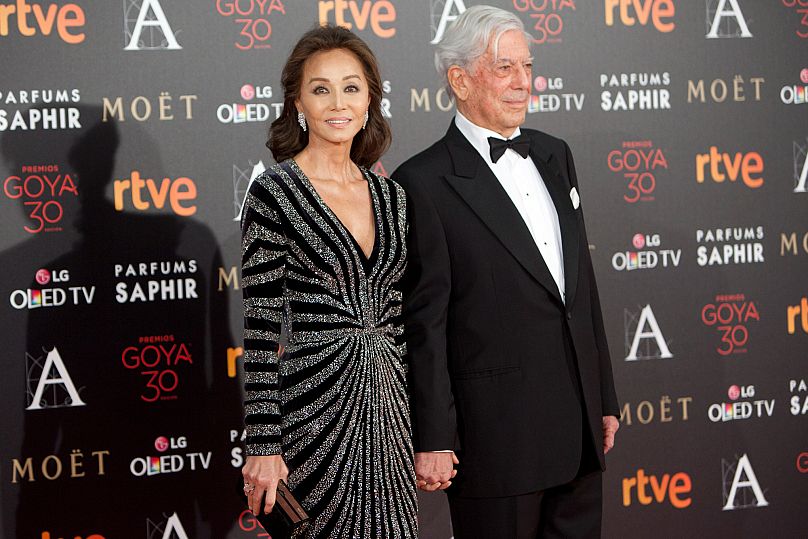Peruvian author Mario Vargas Llosa, Nobel literature laureate and a giant of Latin American letters, died in Lima on Sunday. He was 89.
He was a prolific author and essayist, penning celebrated novels including The Time of the Hero ("La Ciudad y los Perros") and Feast of the Goat. Vargas Llosa won myriad prizes, including the 2010 Nobel Prize for Literature.
“It is with deep sorrow that we announce that our father, Mario Vargas Llosa, passed away peacefully in Lima today, surrounded by his family,” read a letter signed by his children Álvaro, Gonzalo and Morgana, and posted by Álvaro on X.
“His departure will sadden his relatives, his friends and his readers around the world, but we hope that they will find comfort, as we do, in the fact that he enjoyed a long, adventurous and fruitful life, and leaves behind him a body of work that will outlive him,” they added.
'Somewhat traumatic' childhood
Jorge Mario Pedro Vargas Llosa was born on 28 March 1936, in Peru’s southern city of Arequipa, high in the Andes at the foot of the Misti volcano.
His father, Ernesto Vargas Maldonado, left the family before he was born. To avoid public scandal, his mother, Dora Llosa Ureta, took her child to Bolivia, where her father was the Peruvian consul in Cochabamba.
Vargas Llosa said his early life was “somewhat traumatic". He was pampered by his mother and grandmother in a large house with servants, and his every whim was granted.
Vargas Llosa started writing early, and at 15 was a part-time crime reporter for La Crónica newspaper. According to his official website, other jobs he had included revising names on cemetery tombs in Peru, working as a teacher in the Berlitz school in Paris and briefly on the Spanish desk at Agence France-Presse in Paris.
He published his first short story collection, The Cubs and Other Stories ("Los Jefes") in 1959. However, he only burst onto the literary stage in 1963 with his groundbreaking debut The Time of the Hero, a novel that drew on his experiences at a Peruvian military academy and angered the country’s military. A thousand copies were burned by military authorities, with some generals calling the book false and Vargas Llosa a communist.
That, and subsequent novels such as Conversation in the Cathedral, ("Conversación en la Catedral") in 1969, quickly established Vargas Llosa as one of the leaders of the so-called “Boom,” or new wave of Latin American writers of the 1960s and 1970s, alongside Gabriel García Márquez and Carlos Fuentes.

He continued publishing articles in the press for most of his life, notably in a twice-monthly political opinion column titled “Piedra de Toque” (Touchstones) printed in several newspapers.
Vargas Llosa came to be a fierce defender of personal and economic liberties, gradually edging away from his communism-linked past, and regularly attacked Latin American leftist leaders he viewed as dictators.
Although an early supporter of the Cuban revolution led by Fidel Castro, he later grew disillusioned and denounced Castro’s Cuba. By 1980, he said he no longer believed in socialism as a solution for developing nations.
In a famous incident in Mexico City in 1976, Vargas Llosa punched fellow Nobel Prize winner and ex-friend García Márquez, whom he later ridiculed as “Castro’s courtesan”. It was unclear whether the fight was over politics or a personal dispute, as neither writer wanted to discuss it publicly.
As he slowly turned his political trajectory toward free-market conservatism, Vargas Llosa lost the support of many of his Latin American literary contemporaries and attracted much criticism even from admirers of his work.
In 1990, he ran for the presidency of Peru, but lost out to a then-unknown Alberto Fujimori.
'Peru is a kind of incurable illness'
Vargas Llosa drew much of his inspiration from his Peruvian homeland, but preferred to live abroad, residing for spells each year in Madrid, New York and Paris.
His early novels revealed a Peruvian world of military arrogance and brutality, aristocratic decadence, and Stone Age Amazon indigenous people living simultaneously with 20th-century urban blight.
“Peru is a kind of incurable illness and my relationship to it is intense, harsh and full of the violence of passion,” Vargas Llosa wrote in 1983.
In 1965, he married his first cousin, Patricia Llosa, 10 years his junior, and together they had three children.

They divorced five decades later, and he started a relationship with Spanish society figure Isabel Preysler, former wife of singer Julio Iglesias and mother of singer Enrique Iglesias. They separated in 2022.
Vargas Llosa is survived by his children.







